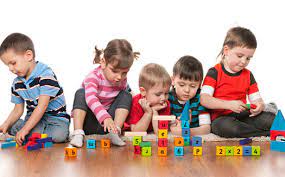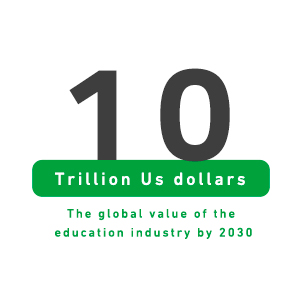A kindergarten feasibility study serves as a comprehensive roadmap, outlining the necessary steps and strategies for creating a successful project in the early education field. This study focuses on conducting a thorough market analysis to understand the needs of children and parents, as well as determining the demand for kindergarten services. In addition, it provides a comprehensive financial feasibility evaluation to assess the costs of establishment, operations, and expected revenues, helping to estimate the potential profitability of the project. The study also includes the development of effective marketing strategies to attract potential clients, such as identifying suitable promotion and pricing strategies that align with market capabilities. Furthermore, the feasibility study addresses the creation of an operational plan that includes designing educational curricula, selecting qualified teaching staff, and equipping the kindergarten with the latest educational tools to ensure the delivery of high-quality educational services. Moreover, the feasibility study aims to identify available opportunities and potential challenges that the project may face, providing valuable insights for making informed decisions about successfully launching the project.

The kindergarten project is a specialized educational institution that aims to provide educational and care services for children aged 3 to 6 years. The project focuses on developing children’s academic, social, and emotional skills to build a strong foundation for child development through a comprehensive educational curriculum that blends educational and recreational activities, fostering a love of learning and innovation in children. The project provides a safe and stimulating environment that encourages children to explore and interact positively, supported by a qualified educational team with the necessary experience to ensure an outstanding level of education and care. The kindergarten is equipped with the latest educational tools and modern technologies, along with spaces dedicated to games and interactive activities that contribute to the development of children’s motor and social skills. The project includes diverse programs covering the basics of language and mathematics, in addition to activities that enhance creativity and life skills. It also focuses on instilling moral values and positive behaviors, preparing children for a smooth transition to the next stages of education. Finally, we emphasize that a kindergarten feasibility study is the only guarantee of the success of this project; so request one now from “Mashroo3k” Company.



Developing Basic Skills such as reading, writing, and arithmetic through fun and engaging methods.
Creating a Safe and Stimulating Learning Environment that encourages children to explore and learn.
Learning Through Play to enhance participation, creativity, and fun in the learning process.
Developing Social and Communication Skills to help children interact and build relationships with peers.
Fostering Creative Abilities through artistic activities that promote imagination and expression.
Teaching Positive Values and Behaviors to instill good character and social responsibility in young learners.
Encouraging Physical Growth through sports and active play that contribute to overall well-being.
Involving Parents in monitoring and supporting their child’s development and learning progress.
Executive summary
Study project services/products
Market Size Analysis
Risk Assessment
Technical study
Financial study
Organizational and administrative study

The “Mashroo3k” Consulting and Market Research Company recognizes the vital role of the education sector in the development of national workforce localization. Below are key indicators of the education sector across the GCC countries, highlighting the sector’s importance and the opportunities for investment:
Early Childhood Education (including nurseries and kindergartens): The total number of students in early childhood education in the GCC countries is 851,500 students according to the latest available statistics.
Primary and Secondary Education: The number of students in primary and secondary education is estimated at 9.3 million students, with 79.4% enrolled in public schools and 20.6% in private schools.
Adult Education: The number of students in adult education centers is around 181,247 students.
Higher Education: There are 2,206,446 students enrolled in higher education institutions.
Early Childhood Educators: There are approximately 50,647 teachers working in early childhood education.
Primary and Secondary School Teachers: The total number of teachers in primary and secondary education is estimated at 727,904 teachers.
Early Childhood Educational Institutions: There are 5,806 educational institutions operating in early childhood education.
Primary and Secondary Educational Institutions: There are 32,310 educational institutions operating at the primary and secondary education levels.
Governments in the GCC countries have made efforts to bridge the gap between education and the labor market. This includes adopting educational curricula that emphasize vocational and technical education, encouraging learning through modern technologies and media. In terms of spending, the GCC countries have significantly increased their investments in education to ensure the graduation of generations capable of meeting the private sector’s workforce needs. The following are the education budget allocations:
Saudi Arabia: 18.9% of its budget is allocated to education.
United Arab Emirates: 14.8% of its budget is allocated to education.
Oman: 12.2% of its budget is allocated to education.
Bahrain: 9.8% of its budget is allocated to education.
Kuwait: 12.3% of its budget is allocated to education.
Qatar: 10.5% of its budget is allocated to education.
By 2023, the private education market in the GCC countries is expected to reach a value of $26.2 billion.
The global educational services market reached a value of $2,882.52 billion by the end of 2021. Experts predict that the market will grow to $3,191.79 billion by the end of 2022, achieving a 10.7% compound annual growth rate (CAGR).
By 2026, the market value is expected to reach $4,623.90 billion, with a 9.7% CAGR during the forecast period.

By 2030, the global education industry is projected to reach a value of $10 trillion.
By 2024, the global value of online education is expected to reach $247.46 billion.
The AI-driven education market will expand at a 36% compound annual growth rate (CAGR) from 2022 to 2030.
In 2000, the total number of students worldwide was approximately 657 million. This number increased to 739 million students by 2019.
In 2000, there were around 452 million students in secondary education. This number grew to 601 million students by 2019.